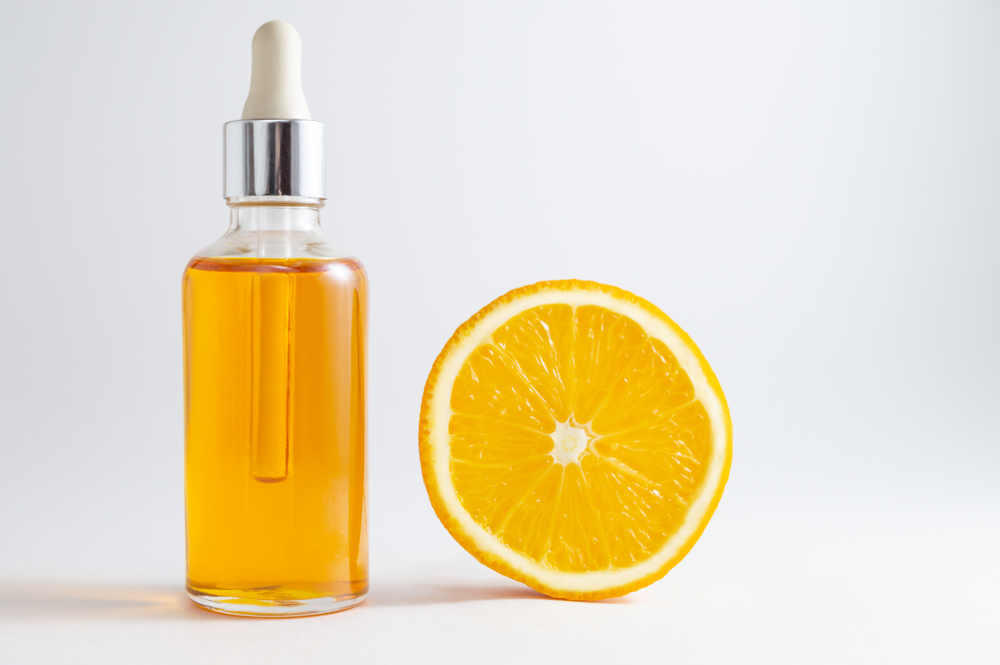Even if you're not a beauty or skin care expert, you've surely heard the word "antioxidant" tossed around—and there's a good reason for it. When it comes to hero skin care ingredients, antioxidants are one of the best for keeping your skin looking healthy. There are many antioxidant benefits for skin, so let's get right to it. Here's how to incorporate antioxidant skin care products into your daily routine to get the best the skin care world has to offer.
What Are Antioxidants?
The National Center for Complementary and Integrative Health defines antioxidants as substances that fight cell-damaging compounds called free radicals. These unstable molecules come from your body's natural metabolism, but they also come from environmental pollutants like cigarette smoke and industrial chemicals. Free radicals can neutralize viruses and bacteria in healthy amounts, but excessive buildup can lead to illnesses, such as diabetes, cancer, and cardiovascular disease. They can also break down your skin's natural barrier and cause several skin concerns. These include increased risk of sunburn, fine lines and wrinkles, pigmentation, and skin cancer.
Antioxidant Food Sources
Your body produces natural antioxidants, but you can boost your antioxidant intake with foods and vitamins. Many kinds of produce contain antioxidants, including beets, beans, spinach, and kale. If those aren't to your taste, you can get plenty of antioxidants from strawberries, blueberries, raspberries, and even dark chocolate. With all these healthy and tasty options, you shouldn't have any trouble getting the internal antioxidants you need.
Antioxidant Skin Care Products
To deliver the benefits of antioxidants straight to your skin, you can also apply them topically with antioxidant skin care products. Look for formulas that contain Vitamin C, Vitamin E, Retinol, and Niacinamide. Product packaging is usually pretty upfront about containing these substances—after all, who wouldn't want to boast such helpful ingredients?
What Are the Antioxidant Benefits for Skin?
Your skin is your largest organ, and it's constantly protecting you from the elements and external pollutants. But your skin needs protection, too. Antioxidants support your skin health so it can do its job better (and look good while doing it). Here's what antioxidant support means for your skin.
Preserves Collagen
Studies show that antioxidants help preserve collagen and stimulate collagen synthesis. This helps keep your skin plump and smooth, minimizing the appearance of fine lines and wrinkles.
Soothes Acne
Antioxidants calm inflammation in the skin, which can reduce those pesky breakouts and help combat redness and irritation.
May Lower Skin Cancer Risk
Free radical buildup, called oxidative stress, is linked to skin cancer development. Antioxidants fight oxidative stress and cellular DNA damage, which can lead to cellular mutations. To build up your defense with a one-two punch, try a sunscreen with antioxidants like EltaMD UV AOX Mist Broad-Spectrum SPF 40.
Prevents and Repairs Damaged Skin
By reducing inflammation and protecting your skin from ultraviolet (UV) radiation and other environmental aggressors, antioxidants defend your skin against free radical damage and support its natural regenerative process.
Brightens and Evens Your Complexion
Antioxidants protect your skin from the full spectrum of sun damage, which includes discoloration like melasma, sun spots, and hyperpigmentation. Studies show that antioxidant Vitamin C may be particularly effective for treating discoloration.
How Should You Use Antioxidants in Skin Care?
Many skin care products boast antioxidants in their ingredient list, from sunscreens to moisturizers to serums. When it comes to which and how many of these to incorporate into your routine, you can't get too many antioxidants. In fact, incorporating several different antioxidants into your daily routine can help you get more comprehensive protection against free radicals since different antioxidants have unique properties. For example, one study showed that pairing Vitamin C, Vitamin E, and Ferulic Acid significantly reduced pigmentation in people with melasma.
You can also combine antioxidants with other skin care ingredients, such as amino acid complexes, to repair and strengthen your skin barrier. EltaMD Skin Recovery Essence Toner, for example, boasts antioxidants and a patented combination of amino acids to soothe, hydrate, and detoxify skin.
The EltaMD UV AOX Collection offers a variety of different types of sunscreen that are all 100% mineral sunscreens that are powered by antioxidants to not only protect your skin from harmful UVA and UVB rays but also work to help moisturize your skin and combat early signs of aging on your skin.
As with any new skin care product, go slow and listen to your skin. Vitamin C can lead to irritation in certain skin types, so you might want to avoid using potentially irritating ingredients in combination with it, such as Retinol. If you want to use both, try using Vitamin C in the morning and Retinol at night. Consult your Dermatologist for any questions and tailored advice for your skin needs and goals.
Building Your Best Routine Yet
With all the options out there, it's easy to infuse your everyday routine with antioxidant support. Just remember to layer your products in the correct order and use them consistently. And why not focus on increasing your daily supply of antioxidant-rich foods while you're at it? All your body's systems, internal and external, will thank you for it.
